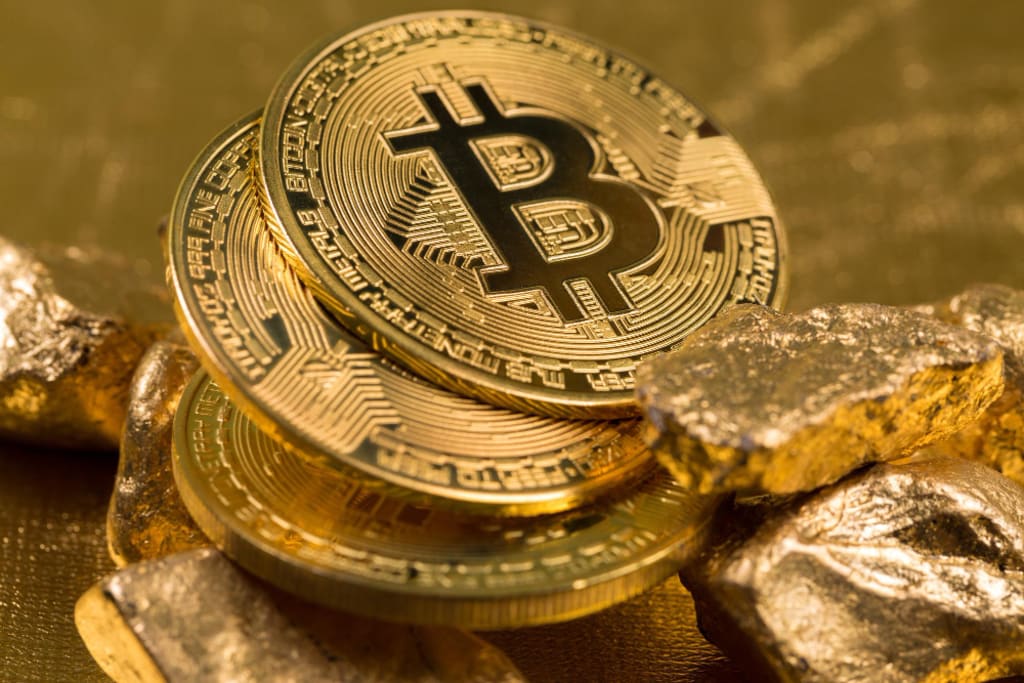The future of blockchain according to experts in the energy sector
Crypto market

Blockchain innovation is a decentralized computerized record that keeps public however encoded records of distributed exchanges. All individuals from a blockchain organization can confirm regardless of whether an exchange happened, delivering clearinghouses or different delegates out of date. The innovation initially filled in as the foundation of bitcoin, the notable digital currency, and later advanced toward different businesses. In France, blockchain addresses a lively industry as the country explores the way for innovation with the expectation of turning into a blockchain center point in the European Association. The French clergyman of money, Bruno Le Maire, trusts that:
"The blockchain will offer new open doors to our new businesses, for instance, with introductory coin contributions that will permit them to raise supports through tokens."
In December 2018, two French individuals from Parliament, Jean-Michel Mis and Laure de La Raudière presented a report suggesting that the French Government contribute 500 million euros to open blockchain tries throughout the following three years to construct a "blockchain country".
The novel qualities of blockchain innovation (lower exchange costs, expanded straightforwardness, and upgraded security) are setting out new open doors for the French power area. A couple of new businesses, for example, Sun chain or Development Energy are as of now laying out blockchain-based projects with the primary point of additional decentralizing existing energy frameworks. A few boundaries to the wide reception of blockchain anyway are yet to be survived.
Where is the blockchain headed?
In this unique situation, the Energy Market Gauges led by Grenoble Ecole de The executives (Pearl) in December 2018 asked specialists for their perspective on where blockchain is going in the French energy area. As a first finding, the specialists were similarly parted as they would like to think about whether blockchain will play a fairly significant or a somewhat immaterial job in the French power arrangement of tomorrow. To comprehend the significance of blockchain innovation in the energy area and the difficulties that it faces, the specialists were requested their viewpoint on the feasibility of explicit blockchain applications and the possible advantages, as well as the obstructions right now restricting more extensive dissemination of the innovation in France.
Subject matter authorities agree, the most encouraging utilization of blockchain innovation in the power area in the following five years, are "distributed energy exchanging" and "electric vehicle charging and sharing". The blockchain vows to make a framework by which energy prosumers from the business area or confidential homes can exchange power without the impedance of focal power. With the persistent development of electric vehicles, blockchain vows to give a satisfactory, freely accessible charging foundation that handles the "absence of reach" challenge, by empowering people to make their confidential EV charging stations accessible for public use for an expense.
Right now, most of the players in the blockchain for the energy market are attempting to order a type of distributed energy exchange. In 2017, Enedis, working with the French beginning up Sun chain and the Departmental Chamber of Pyrénées-Orientales, sent off one of the main P2P energy-sharing ventures in France. The task, DIGISOL, investigated the utilization of blockchain innovation to divide sun-oriented energy among people inside a similar structure (aggregate auto-utilization). The huge scope of sending innovation for P2P energy exchanging anyway is still inexistent in France.
Blockchain innovation is intriguing for its capability to decentralize energy advertisements and further develop adaptability. blockchain empowers constant coordination of power market interest information that can further develop request-side energy proficiency. blockchain arrangements can likewise be utilized to precisely screen and control energy execution continuously, which will at last increment supply-side productivity. Basically, blockchain furnishes organizations with approaches to productively follow energy use and age and recognize network oddities, which can further develop reaction time if there should be an occurrence of a disappointment or a power outage. In France, ENGIE is investigating the utilization of blockchain innovation to screen water, flammable gas, and energy streams. The organization has additionally collaborated with various blockchain players, for example, Record, which represents considerable authority in security and framework answers for digital currencies and blockchain applications, to create a blockchain for energy market arrangements.
Muddled administrative and legitimate system
Blockchain arrangements are quickly developing and advancing a long way in front of existing guidelines. Clear legitimate definitions and administrative systems are required to get up to the ongoing level free from the vulnerability that is related to blockchain. The French government, alongside players in the blockchain biological system, is as yet dealing with laying out ideal guidelines and legitimate structures for innovation. In December 2018, the French Bookkeeping Norms Authority laid out a guideline that characterizes the bookkeeping rules material to Beginning Coin Contributions (ICO; a profoundly famous way to deal with bringing capital up in the blockchain space) backers, ICO financial backers, and associations that hold any kind of digital money or crypto-resource. Be that as it may, a few issues like protected innovation, information security, and enforceability of agreements still need to be tended to.
Power utilization
(What might be compared to letting a radiant light of 25W consume for an entire year). This is for the most part in light of the fact that approving and getting exchanges on the blockchain requires enormous figuring power. For instance, the servers that run bitcoin's product are assessed to use something like 22 terawatt-hours (TWh) each year, which is practically the level of Ireland's yearly power utilization. The development of blockchain will require extra "information mining" and therefore extra energy utilization. Various green-mining arrangements that utilize sustainable power sources and more energy-effective equipment are at present being tried. The efficient power energy startup Hydrominer, which works on two hydropower mining ranches in the Austrian Alps is one model.
Specialized intricacy
Current blockchain plans are very hard to create, convey and keep up with. For fledgling clients, making an exchange on the blockchain can challenge, as it requires specialized information and a few modern advances. Various huge IT players are presently giving cloud-based blockchain administrations expected to robotize the arrangement of blockchain frameworks. Future blockchain applications might have to take on a fitting and-play foundation that is considerably easier to use to achieve more extensive dissemination.
If you like to get rich with bitcoin you can get access from
>>Here<<How To Get Rich With Bitcoin Even If You Have No Clue About Technology
Do you like to Reap Massive Crypto Profits?
About the Creator
Sithum Chathumina
I am an experienced cryptocurrency trader and I am an expert in trading






Comments
There are no comments for this story
Be the first to respond and start the conversation.